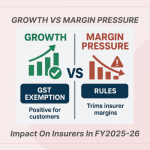A Landmark Judgment Shaking Car Finance in the UK
The UK Supreme Court recently delivered a landmark ruling that has put the spotlight on the car finance industry and its lack of transparency. The case involved Marcus Johnson, a consumer who challenged his car loan, claiming it was unfair due to a 55% commission that was undisclosed.
While the ruling technically sided with lenders, the judgment has opened a Pandora’s box for consumer claims, regulatory reforms, and litigation risks. According to claimant lawyer Kevin Durkin, this ruling has “smashed the doors open” for thousands of potential lawsuits against unfair loan agreements.
The Case: Marcus Johnson vs. Car Loan Provider
Marcus Johnson entered into a car loan agreement where the dealer earned a 55% commission from the lender—an amount he was never informed about. This lack of transparency created a situation where the loan terms were unfair and biased against the consumer.
The Supreme Court ruled that while lenders were not directly in breach, the undisclosed commissions represented a serious transparency failure.
The Hidden Commission Problem in Car Loans
One of the biggest revelations of this case is the dealer-lender commission structure.
- Dealers often earned high commissions based on the interest rates applied to consumers.
- The lack of disclosure meant consumers were unaware of how much they were overpaying.
- In Johnson’s case, a 55% commission inflated costs without his knowledge.
This exposes a systemic issue in the UK’s car finance market, which may now face greater scrutiny and legal challenges.
Why the Ruling Matters for Consumers
This judgment highlights three major implications for UK borrowers:
- Increased Awareness – Consumers now know that they may have been unfairly charged through hidden commissions.
- Litigation Wave – The ruling opens the door for more claims from borrowers who were subject to unfair car loan agreements.
- Regulatory Pressure – The Financial Conduct Authority (FCA) may need to revise or strengthen its redress scheme to cover cases of hidden commissions.
The FCA Redress Scheme Debate
The FCA already operates redress mechanisms for consumers who were mis-sold financial products. However, critics argue these schemes lack teeth and often fail to deliver justice for individuals.
Kevin Durkin, representing consumers, stated that the ruling shows the FCA redress process may not be sufficient to protect borrowers from unfair lending practices.
The pressure is now on the FCA to:
- Expand coverage of its redress scheme
- Ensure transparency in dealer-lender relationships
- Hold banks and car finance companies accountable
Impact on the UK Car Finance Industry
The ruling could have far-reaching consequences:
-
Mass Claims: Consumers may file thousands of claims, seeking refunds for unfair commissions.
-
Market Reforms: Car dealers and lenders may need to change commission structures.
-
Reputation Damage: Car finance companies risk losing public trust due to perceived unfairness.
-
Financial Impact: Pay-outs from claims could cost lenders billions of pounds in compensation.
UK Car Loan Rules vs. Global Standards
In many countries, strict regulations require full disclosure of commissions and fees. The UK’s system, however, has allowed dealers and lenders to keep these figures opaque.
This ruling may push the UK to align with global best practices, ensuring better consumer protection.
Conclusion
The UK Supreme Court’s car loan ruling is more than just one consumer’s victory—it’s a wake-up call for the entire finance industry. By highlighting hidden commissions and lack of transparency, the case has exposed systemic issues that demand reform.
As claims mount and regulators come under pressure, this could mark the beginning of a new era of accountability in UK car finance.
FAQs
Q1. What was the UK Supreme Court’s car loan ruling about?
The ruling involved Marcus Johnson, whose car loan included a hidden 55% dealer commission, raising concerns over fairness and transparency.
Q2. Did the ruling favour consumers or lenders?
While technically seen as a win for lenders, the judgment highlighted major transparency issues, paving the way for more consumer claims.
Q3. What is the FCA’s role in this case?
The FCA operates redress schemes but faces criticism for being ineffective. The ruling pressures the FCA to strengthen protections.
Q4. Can other consumers make claims after this ruling?
Yes, thousands of consumers may now challenge car loan agreements that involved undisclosed commissions.
Q5. How could this impact the car finance industry?
The industry may face large-scale litigation, financial pay-outs, and stricter regulations on commission disclosure.
Q6. What should borrowers do if they suspect unfair commissions?
Borrowers should review contracts, request commission details, and seek legal advice if unfair terms are suspected.













